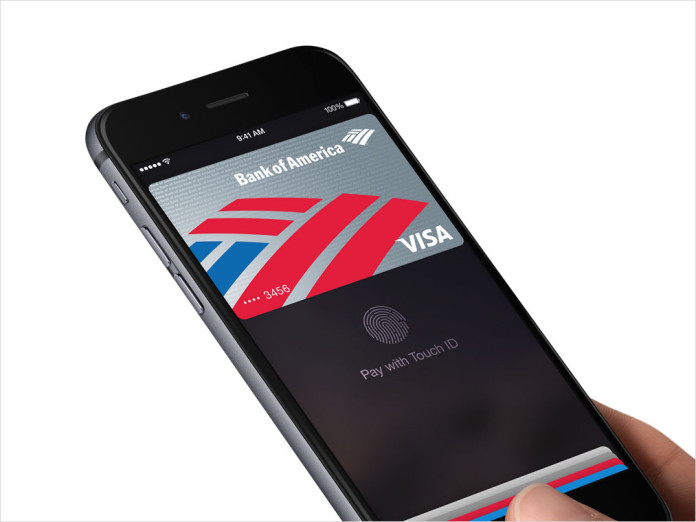
news Reserve Bank of Australia Governor Glenn Stevens has claimed in a letter to a Labor MP that he has not seen “any evidence” that Australia’s major banks are actively boycotting the Apple Pay mobile payments service, despite the fact that only American Express has signed up to the service in Australia.
Apple Pay allows iPhone users to insert their credit card details in their smartphone and then make mobile payments with their device instead of a card. The service has launched in the US, UK and Canada.
However, when the platform launched in Australia in November, no Australian bank was prepared to support it, with only American Express signing up. This means that Apple Pay is effectively useless for Australians, as almost all credit cards in Australia are issued through banks and not directly through credit card companies such as American Express, Mastercard and VISA.
The Sydney Morning Herald reported as early as August that Australia’s major banks had blocked the service because they did not want to pass on any of the approximately $2 billion in transaction interchange fees to Apple.
This led Labor’s Ed Husic — Shadow Parliamentary Secretary Assisting with Digital Innovation and Startups — to write to the Australian Banking Association and the Reserve Bank of Australia in November calling for “technology neutral” regulation to avoid consumers suffering from the possibly “anti-competitive” actions of some financial institutions.
In a letter sent to Husic in early December and seen by Delimiter, however, Reserve Bank Governor Glenn Stevens rejected any claim of improper behaviour by the banks.
“Staff at the bank meet regularly with participants in the payments industry, and have discussed issues relating to mobile wallets (including Apple Pay) over the past couple of years,” said Stevens.
“The Bank is aware that there are commercial negotiations being undertaken involving banks, schemes and mobile phone manufacturers. As a rule, the Bank does not interfere in an area such as this unless there are public issues raised that relate to risk, efficiency or competition in the payments system.”
“To this point, the Bank’s discussions relating to Apple Pay have not provided any evidence that Australian banks have been ‘boycotting’ Apple Pay. Nor have they led to any sense that there is some shortcoming in our regulatory framework that has resulted in Australian banks not yet enabling Apple Pay.”
Stevens further pointed out that Apple Pay was not yet widely available globally, and argued that Apple Pay’s adoption in the United States may reflect the limited availability of contactless functionality on most payment cards in that market.
“By enabling ‘wave/tap and pay’ payment, Apple Pay represents a significant innovation for American cardholders,” he said. “Conversely, Australia leads the world in contactless payments.”
“While this is not the only relevant factor, it does mean that there may be a bigger market opportunity for Apple Pay in the United States than in Australia, given the broad use and acceptance of contactless cards that we see in our market.”
In general, Stevens said the RBA agreed with Husic about the importance of an open payments architecture that was technologically neutral. With this in mind, he said, the RBA had set criteria for its New Payments Platform project requiring the use of the ISO 20022 standard for payments messaging.
The bank had also supported the switch from the ‘hard to join’ bilateral networks for EFTPOS processing to “access-friendly architecture” involving the Community of Interest Network and eftpos Payments Australia’s eHub.


Australian banks aren’t “boycotting” Apple Pay and Google Wallet.
Banks are merely continuing the long Australian business tradition of actively opposing all innovation until a foreign competitor drives them into bankruptcy.
Oh. But… Now if I get an Apple device and it has ApplePay, how many banks can I “tap” into?
More importantly, will an iPhone fit neatly into my wallet?
Will an iPhone fit into the plunge pocket on the EFTPOS terminal?
And can I program ApplePay to force the use of my PIN regardless of the retailer’s preferences?
I’ll make a wild guess that the answers are Not Important; No; No; and No.
So yes, you are right, banks are merely continuing the long Australian business tradition of actively opposing all retrograde innovation until a foreign competitor drives them into bankruptcy.
However, Commonwealth, Westpac and ANZ all support NFC contactless payments for eligible Android phones through their own app. I don’t think they are opposing innovation. They just do not want to pay the $2b fee. Too bad Apple doesn’t allow for developers to access the NFC capabilities on iPhones so that Apple can force banks to comply with Apple Pay
And I wouldn’t call Apple Pay ‘innovation’
Go banks! Hang on, banks are evil. Go Apple! Hang on…
Google doesn’t seem to be having the same trouble bringing Android Pay to Australia (http://google-au.blogspot.com.au/2015/12/tap-pay-down-under.html). Maybe it’s because Apple’s insisting on getting an excessive transaction fee for each purchase, like how they take 30% off all transactions through apps on iDevices (https://developer.apple.com/programs/).
My impression is Google is not charging the banks (it’s operating as a technological layer on top), while Apple wants to charge. Good luck getting banks to hand over some of their revenue …
MasterCard and Visa don’t charge? Even like wounded bulls?
No they don’t, they are financial institutions, not bulls, not even a member of the bovine family.
Oh I’m sorry, did I willfully misinterpret your question/statement?
Comments are closed.